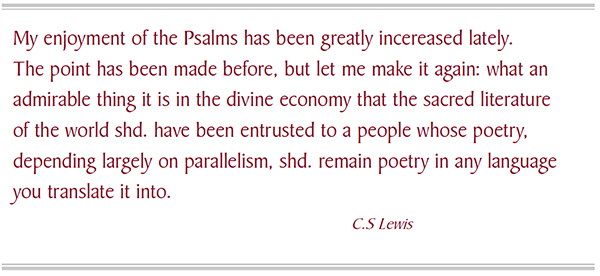Back to series

Recommended Reading:

First Steps to Loving and Understanding Our Jewish Neighbors
Click here to open a Print - Friendly PDF
An Excerpt from Engaging with Jewish People: Understanding Their World, Sharing Good News
|
There are approximately 14 million Jewish people in our world of over 7 billion. That means my people make up less than one percent of the world’s population. Actually it’s a lot less than one percent. It’s two tenths of one percent. And yet, in ways that could fill entire books, Jewish people have had a disproportionate amount of influence in the worlds of politics, education, business, science, entertainment, literature, and numerous other fields. When you consider how so very few (none?) of the world’s other ancient peoples still exist (seen any Hittites or Jebusites lately?), you can see why some people see the hand of almighty God behind the people He calls “chosen.” A little less than half of those 14 million live in Israel. Almost that same number live in the United States with almost half of those living in or near New York City. Most Jewish people live in or near cities such as Los Angeles, Paris, London, Toronto, Buenos Aries, and Moscow. Of course, by the time you read this, those locations may have shifted a bit. As I write this in early 2016, I hear about significant migrations of Jewish people from France to Israel because of rising anti-Semitism. My people have always had to move because of hatred and persecution. Some of the numbers of change in population can stagger the imagination. Poland’s demographics disturb the most. In 1930, 3 million Jewish people lived in Poland. Today there are barely 3,000. Most were killed by the Nazis. The rest escaped to America, Israel and elsewhere. The combined populations of Jewish people in Germany, Austria, Czechoslovakia, Hungary and Romania had grown to over 2.5 million by 1930. Today, those locations account for less than 200,000. Of course, these numbers all presume it’s easy to identify who is Jewish and who is not. They’re the biological descendants of Abraham, Isaac and Jacob, right? But such simplicity rarely occurs in the Jewish world. In fact, you could read lengthy discussions about “Who is a Jew?” that would make you wonder if you’ve stumbled into a law-school classroom or a Shakespearean tragedy.
Why your mother and not your father, since so many places in the Scriptures trace people’s ancestries through the line of the father? Because the centuries of persecution often included the raping of Jewish women by non-Jewish oppressors. This led to births of children who knew who their mother was but for whom identifying their father wasn’t so easy. So the rabbis decided that the way to keep our people intact and distinguish who “we” are from who “they” are was to keep track of the mothers and their children. God did raise up fathers to lead the families and communities from the survivors of such cruelty, but it all made for a rather messy situation. Perhaps this is why Jewish people now place such a high priority on the family. Then again, the Bible values the family rather highly as well. For the purpose of this book, however, we don’t need to explore the debate about “Who is a Jew?” any further. The Jewish people you’re likely to meet won’t be wondering if they’re really Jewish. They’ll either identify themselves as such or not. Some, to be sure, may be wondering what that means. They may not have been raised in a very observant family and now they would like to connect to their roots. In fact, a growing number of Jewish people in America are reclaiming or re-establishing or finding for the first time their Jewish roots during their middle age. These kinds of newfound identities could be fertile soil in which to cultivate conversations about the Messiah. But I’m getting ahead of myself. Let’s wait a bit before we explore how we reach out. For now, it’s worth reflecting further on understanding who we’re talking to. Jewish people love to point out that Judaism is more than a religion. And it’s more than a race. And it’s more than an ethnicity. Some like to say, “It’s a way of life.” Jewish people weave together doctrine, diet, humor, tone of voice, and a dozen other aspects of life all under the banner of “Jewish.” Part of the reason why Jewish evangelism is so difficult is that most Jewish people see Christianity as so alien. Being Jewish is not just having a different set of beliefs. It’s different flavors of food, different ways to tell jokes, different views about politics, and different planets of social customs. If I had to condense what it means to be Jewish to four prevailing themes, I’d say they’re pain, pride, pleasure, and promise. PainI’ve already mentioned enough things to highlight the reality of pain in the Jewish mindset. A fair number of Jewish holidays commemorate times when enemies tried to wipe us out but God spared us. For Passover we remember our deliverance from slavery to the Egyptians with a feast called a seder. For Purim, we rejoice that wicked Haman’s plot to kill us didn’t succeed and we nosh on cookies called hamantaschen. For Hanukkah, we dedicate ourselves to God, who empowered us to retake the temple from Antiochus Epiphanies, and we eat potato pancakes. One Jewish comic quipped that most of our holidays could be summarized with three short sentences: “They tried to kill us. We won. Let’s eat.” PrideBecause we have survived so much, against such odds, so many times, we have developed a kind of Jewish pride that has been, in my opinion, both a blessing and a curse. It’s a blessing because it builds upon itself. It looks at past accomplishments and spurs us on to even greater ones. Not only do we survive persecutions but we also produce Nobel Prize winners, cure diseases, write masterpieces, advance social improvements, and rise above our circumstances. We can do anything—or so we think. This kind of pride has enabled the country of Israel to thrive economically and agriculturally even though it consists largely of desert. The Jewish people have developed a will to excel even when the odds are against them. When Jewish people reflect on their corporate rags-to-riches status, they grow more energized to excel still more.
This warning is for all of us, whether Jewish or Gentile. Everyone must be wary of a reliance on self that forgets our constant dependence on the One who gives us every breath, step and thought. Without Him, we cease to exist—both individually as persons and corporately as a people. For some, this ethnic pride has theological roots—but not ones that accurately reflect the teaching of Scripture. God’s Word goes out of its way to say that God did not choose the nation of Israel because of any merit of its own.
I write these words with tears and an ache in my heart but I know these sentiments are real for at least some of my people. If you’re tempted to think condemning thoughts right now about Jewish pride, consider the universal and insidious nature of pride. And reflect carefully that you too may, from time to time, take credit for things that actually come from the hand of our gracious God. Examine your heart and see if you harbor any bitterness toward God for not always behaving the way you want Him to. Spend time considering how necessary the cross was to atone for your sins, and drink deeply from the well of gospel grace that chose to rescue you from your own self-reliance. And then ask God to give you the same burden for the Jewish people that Paul had, agreeing with his description of them as…
PleasureI’ve already mentioned the close ties between Jewish holidays and food. But deliciousness is not just for ceremonial occasions. Who needs to wait for a wedding or a holiday to enjoy lean corned beef, fresh gefilte fish, stuffed cabbage, bagels, cream cheese and lox, or a dessert tray that’ll warrant a lecture from a cardiologist? And this goes beyond the calendar. It shapes a whole way of seeing. Many Jewish people see Gentile culture (which they do not distinguish from Christianity) as sterile, bland, and in desperate need of a new caterer. Such realities are not insignificant when it comes to reaching out with the gospel.
That song was written for the musical because it reflects how Jewish people think and live. If you’re going to engage well with Jewish people, you’ll want to show and tell how the gospel is good news for this life as well as for the next. And you should probably do so over a nice meal. PromiseThe Jewish mindset, at its best, looks simultaneously backwards and forwards. For example, every year at Passover we retell the story of God’s miraculous deliverance of His people from slavery. Long ago he worked miracles to pour out judgment on Egypt’s false gods through the ten plagues, and displayed his power by parting the Red Sea. But we also look forward during that celebration to the time when all slavery, all oppression, all idolatry, and all wickedness will be wiped away. We end every Seder (Passover meal) with the words, “Next year in Jerusalem,” a shorthand reference to the time when the Messiah comes to set up His kingdom on earth. Thus, Judaism has a forward-looking posture to it, even for some of the most secularized, non-observant Jews. And that future orientation has a strong aspect of hope to it. In fact, the Israeli national anthem is called “HaTikvah”, which means “The Hope”! Perhaps this is why Jewish people involve themselves in politics or pursue civic causes. There’s something in the Judaic DNA that longs for a better day when people “will beat their swords into plowshares and their spears into pruning hooks” (Isaiah 2 v 4). For some of them, this taints their view of Christians who they see as only interested in life after death, only in heaven and not caring about earth, and “so heavenly minded as to be no earthly good.” Part of the task in proclaiming the gospel to Jewish people involves agreement that things are not as they should be while still pointing to eternity—the only time when all longings for heaven can be fulfilled. As followers of the Messiah and lovers of all of the Scriptures, both Old and New Testaments, we see even greater reasons for hope and looking forward. God has already sent His Messiah once, so we are confident that He’ll send Him again to fulfill all remaining prophecies. In the meantime, the promises of Romans 11 tell us that God is not finished with the Jewish people.
This verse answers Paul’s rhetorical question with a resounding “No!” Israel did not “stumble so as to fall beyond recovery (v 11).” The Bible gives us good reason to be optimistic about fruitfulness in proclaiming the good news to the Jewish people. God promised Abraham that his descendants would be as numerous as the stars in the sky, and that they will be a light to the Gentiles. Some interpreters believe that Messianic Jews will bring ultimate fulfillment to that promise when they, as followers of Jesus, will join all the proclaimers of the gospel, tell of the One who is “the light of the world,” and play important roles in the fulfillment of the great commission. Whatever the detail, we should be encouraged that God has not rejected our Jewish friends and neighbours, and that sharing the gospel with them is not a fruitless exercise. There will be many Jewish believers in the Messiah in the crowd who gather around the Lion of the tribe of Judah, singing His praise forever (see Revelation 5 v 5-13). Perhaps one of the Jewish people you know will be among them. Excerpted from the book Engaging with Jewish People: Understanding Their World, Sharing Good News, by Randy Newman. Copyright © 2016. Used by permission of The Good Book Company, North America: www.thegoodbook.com, UK: www.thegoodbook.co.uk. |
|||
|
Notes: |
|||

Randy Newman
Senior Fellow for Apologetics and Evangelism, CSLI
Randy Newman is the Senior Fellow for Apologetics and Evangelism at the C.S. Lewis Institute. He has taught at several evangelical seminaries. After serving for over 30 years with Campus Crusade for Christ, he established Connection Points, a ministry to help Christians engage people’s hearts the way Jesus did. He has written seven books, Questioning Evangelism, Corner Conversations, Bringing the Gospel Home, Engaging with Jewish People, Unlikely Converts: Improbable Stories of Faith and What They Teach Us About Evangelism, Mere Evangelism. and his most recent, Questioning Faith: Indirect Journeys of Belief through Terrains of Doubt. Randy has also written numerous articles about evangelism and other ways our lives intertwine with God’s creation. He earned his MDiv and PhD in Intercultural Studies from Trinity International University.

Recommended Reading:
Randy Newman, Engaging with Jewish People: Understanding Their World; Sharing Good News (The Good Book Company, 2016)
Many Christians are fearful of engaging in conversations about their faith with Jewish people knowing that there are complex issues and suspicions that lie deep beneath the surface. And yet there are many points of contact, and much common ground. This short book is designed to help both Christians and whole churches understand more about the variety of Jewish people we might work with, meet or know, and to reach out to them with the good news of the gospel. Written at a level that everyone can understand, this book emphasizes the importance of forming loving, honest and open relationships as part of the way we engage with our Jewish friends.
 COPYRIGHT: This publication is published by C.S. Lewis Institute; 8001 Braddock Road, Suite 301; Springfield, VA 22151. Portions of the publication may be reproduced for noncommercial, local church or ministry use without prior permission. Electronic copies of the PDF files may be duplicated and transmitted via e-mail for personal and church use. Articles may not be modified without prior written permission of the Institute. For questions, contact the Institute: 703.914.5602 or email us.
COPYRIGHT: This publication is published by C.S. Lewis Institute; 8001 Braddock Road, Suite 301; Springfield, VA 22151. Portions of the publication may be reproduced for noncommercial, local church or ministry use without prior permission. Electronic copies of the PDF files may be duplicated and transmitted via e-mail for personal and church use. Articles may not be modified without prior written permission of the Institute. For questions, contact the Institute: 703.914.5602 or email us.
-
Recent Podcasts
The Side B Stories – Adam Terry’s Story
by Adam Terry, Jana Harmon on April 26, 2024Adam Terry experienced an intellectual crisis of faith....Read More
-
A Welcome Change in Apologetics
by Randy Newman, Aimee Riegert on April 19, 2024
-
Questions That Matter Podcast – Samuel James and Digital Liturgies
by Samuel James, Randy Newman on April 19, 2024
-
Recent Publications
Isn’t Morality Relative?
by Christopher L. Reese on April 1, 2024It is widely accepted in the Western world...Read More
-
Do Muslims and Christians Worship the Same God?
by Andy Bannister on March 1, 2024
-
Artificial Intelligence and Its Impacts on Humanity
by John Lennox on February 13, 2024
0
All Booked
0.00
All Booked
0.00
All Booked
22140
GLOBAL EVENT: Keeping the Faith From One Generation To Another with Stuart McAllister and Cameron McAllister, 8:00PM ET
https://www.cslewisinstitute.org/?event=global-event-keeping-the-faith-from-one-generation-to-another-with-stuart-mcallister-and-cameron-mcallister-800pm-et&event_date=2024-05-17®=1
https://www.paypal.com/cgi-bin/webscr
2024-05-17

Next coming event
Days
Hours
Minutes
Seconds
GLOBAL EVENT: Keeping the Faith From One Generation To Another with Stuart McAllister and Cameron McAllister, 8:00PM ET
On May 17, 2024 at 8:00 pmSpeakers

Randy Newman
Senior Fellow for Apologetics and Evangelism, CSLI
Team Members

Randy Newman
Senior Fellow for Apologetics and Evangelism, CSLI
Randy Newman is the Senior Fellow for Apologetics and Evangelism at the C.S. Lewis Institute. He has taught at several evangelical seminaries. After serving for over 30 years with Campus Crusade for Christ, he established Connection Points, a ministry to help Christians engage people’s hearts the way Jesus did. He has written seven books, Questioning Evangelism, Corner Conversations, Bringing the Gospel Home, Engaging with Jewish People, Unlikely Converts: Improbable Stories of Faith and What They Teach Us About Evangelism, Mere Evangelism. and his most recent, Questioning Faith: Indirect Journeys of Belief through Terrains of Doubt. Randy has also written numerous articles about evangelism and other ways our lives intertwine with God’s creation. He earned his MDiv and PhD in Intercultural Studies from Trinity International University.



 Part of the problem developed when the newly established nation of Israel passed “the law of return.” This allowed Jewish people from all over the world to settle in Israel and claim automatic citizenship “if they identify themselves as Jewish.” You see the potential problems, don’t you? The Israeli government had to qualify that a bit. Eventually they landed on the view that you were Jewish if your mother was Jewish.
Part of the problem developed when the newly established nation of Israel passed “the law of return.” This allowed Jewish people from all over the world to settle in Israel and claim automatic citizenship “if they identify themselves as Jewish.” You see the potential problems, don’t you? The Israeli government had to qualify that a bit. Eventually they landed on the view that you were Jewish if your mother was Jewish. Tragically, for some, this pride has angry roots. I have interacted with enough Jewish people to hear a recurring theme of resentment that God didn’t prevent or stop the Holocaust and other evils. For these people, their success, especially the establishment, protection, and prosperity of the nation of Israel has been in spite of God rather than because of Him. Their cry of “Never again!” means that they will prevent another Holocaust by fighting to the death to provide a safe haven for Jewish people in Israel—even if God doesn’t come through for them.
Tragically, for some, this pride has angry roots. I have interacted with enough Jewish people to hear a recurring theme of resentment that God didn’t prevent or stop the Holocaust and other evils. For these people, their success, especially the establishment, protection, and prosperity of the nation of Israel has been in spite of God rather than because of Him. Their cry of “Never again!” means that they will prevent another Holocaust by fighting to the death to provide a safe haven for Jewish people in Israel—even if God doesn’t come through for them. I’ve also mentioned our love for humor. We love to laugh and make others laugh. For many years, the stand-up comedy world was dominated by Jewish comedians. Perhaps we’re trying to counter our many years of trouble and sorrow. Or perhaps our times of lack propel us to go after more and more. I’ll save it for the cultural anthropologists to analyze the causes. For the sake of this book, I want you to see that Jewish people like nice things, appreciate good music and art, love to celebrate with food and laughter, and think that life—this life—is a good thing. We don’t just sing “L’Chaim” (“To Life!”) because it was a nice show-tune in Fiddler on the Roof.
I’ve also mentioned our love for humor. We love to laugh and make others laugh. For many years, the stand-up comedy world was dominated by Jewish comedians. Perhaps we’re trying to counter our many years of trouble and sorrow. Or perhaps our times of lack propel us to go after more and more. I’ll save it for the cultural anthropologists to analyze the causes. For the sake of this book, I want you to see that Jewish people like nice things, appreciate good music and art, love to celebrate with food and laughter, and think that life—this life—is a good thing. We don’t just sing “L’Chaim” (“To Life!”) because it was a nice show-tune in Fiddler on the Roof.

